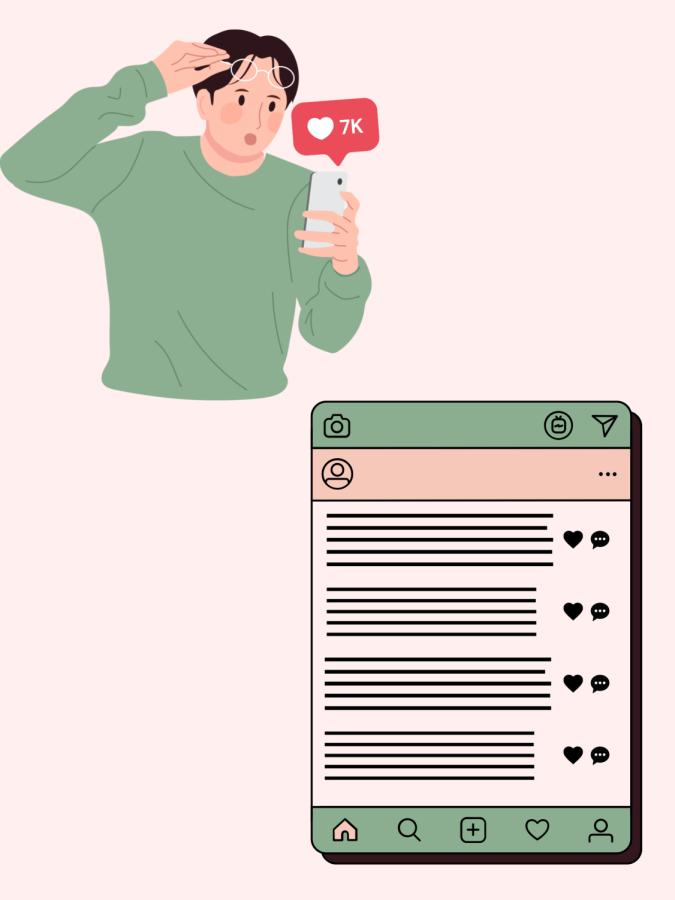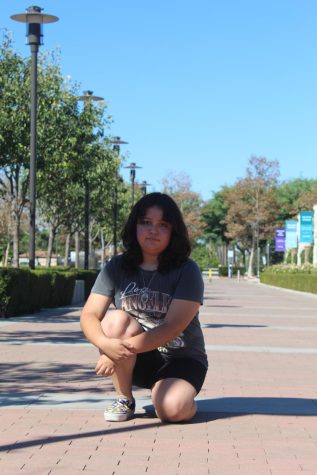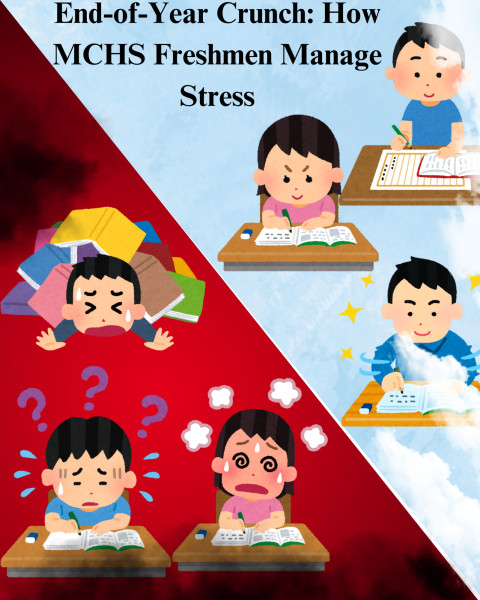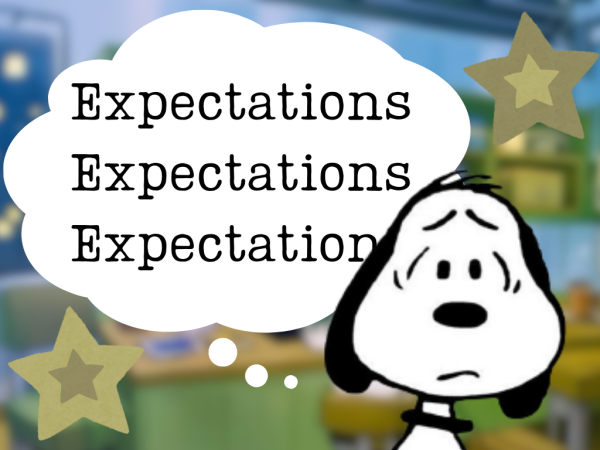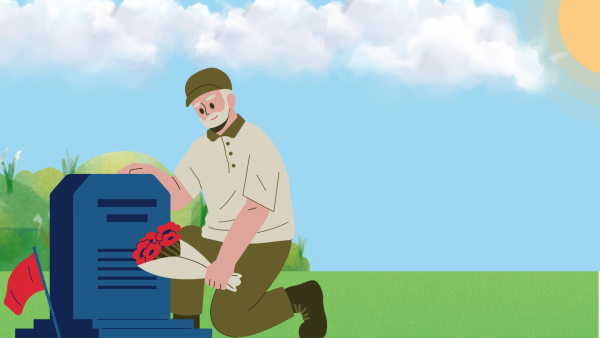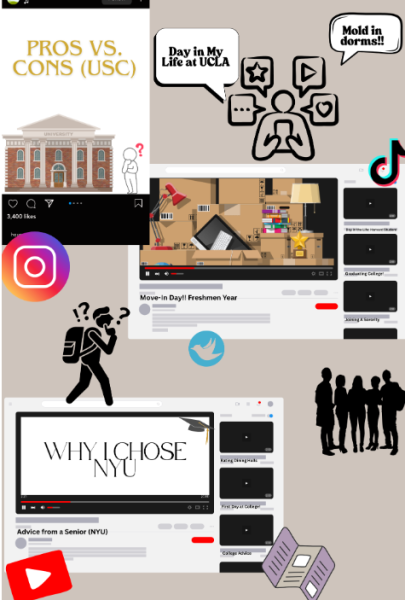Socially acceptable behavior doesn’t apply online
Shirley Gonzalez (created with Canva)
Social media can validate thoughts someone would never say in-person.
You’re scrolling through TikTok and a video pops up. It’s an edit of someone in court. You click on the comments to get a better understanding of what’s going on, and the comments are full of people saying that they’re too hot to serve 24 years.
Cameron Herrin was 17 years old when he killed a mother and her 21-month-old daughter while street racing. Videos of him in court went viral on TikTok because he was considered conventionally attractive and he was so young when the accident happened.
An article from The Daily Beast titled “TikTok Accounts Swarm Street-Racing Killer Cameron Herrin, Urging Release of ‘Too Cute’ for Prison Driver” by Cheyenne Ubiera said, “Herrin has mysteriously developed a cult following on TikTok, where videos of his sentencing are circulating and drawing millions of followers who are collectively deeming him “too cute” for such a long prison term, including with clips showing him crying and putting his mask down in court for a sip of water.”
When Herrin was sentenced to 24 years, his lawyer immediately started working on his appeal; this included starting a petition. The comments on the petition were completely unfiltered and ranged from against his release to for his release.
A commenter on the petition Justice for Cameron Herrin said, “This young man’s life was taken away from (him) at a very young age. It was a tragic accident, and he shouldn’t lose a quarter of his life due to participating in events he enjoyed. This could’ve and can happen to ANYONE in the car community at any given time, or day. How does one NOT notice a vehicle barreling toward them at over 100MPH? I’m not victim blaming, both parties are at fault, but this man doesn’t deserve to lose his life behind a tragedy. As others have stated, many people cause a lot more harm to society and other individuals, scar them permanently, or alter their perceptions for the rest of their existence, yet they receive less severe punishments? This is cruel. Two lives have already been lost, don’t make it a third.”
When people make comments online they will almost never face repercussions for it.
Professor Betty Yimenu said, “(That) when you’re behind a screen or behind a mask when people can’t identify who you are, people are more likely to behave in ways they otherwise wouldn’t.”
The comments of the video of Herrin are an example of a psychology concept called deindividuation that is similar to peer pressure in the way that you wouldn’t behave in certain ways unless you had some sort of protection or your actions were validated.
A study by Jenna Chang titled “The Role of Anonymity in Deindividuated Behavior: A Comparison of Deindividuation Theory and the Social Identity Model of Deindividuation Effects (SIDE)” said, “Zimbardo (1969) placed strong emphasis on anonymity as the cause of diminished concern for self evaluation, which enables individuals to act with disregard for following societal norms of behavior. Deindividuation theory also asserts that the effect anonymity has on producing uninhibited behavior is directly related to group size. Kugihara (2001) found that the larger the size of the group, the higher the degree of anonymity experienced by the group’s members, hence stronger antisocial behavior, actions that oppose a society’s approved standards of conduct.”
The need to fit in, whether online or in person is always there, and many people are affected by it.
“Some people I know, they feel peer pressured into doing things (like drinking or drugs),” freshman Gabriela Geronimo said, “Whether online or in person peer pressure can happen anywhere and affect anyone.”
Teacher Misty Omar has noticed that discussions on social media are full of disrespect and insults.
“Obviously when I go on social media I see tons of people voicing opinions in really aggressive ways and what’s more concerning more than that is the insults that they use towards people who disagree with them. There’s no more discussion anymore, there’s no more debate, and going back and forth. It’s just about hurling insults, undercutting people, not even listening to each other, and that’s unfortunate. But I think that’s easy to do because when your not standing in front of somebody looking them in the eye, physically being in their presence, there just a name on a screen. Then it kind of takes away the human factor, and its easier to just be cruel, and insulting to someone you’ve never met who you don’t even have an idea of as a person,” Omar said.
































